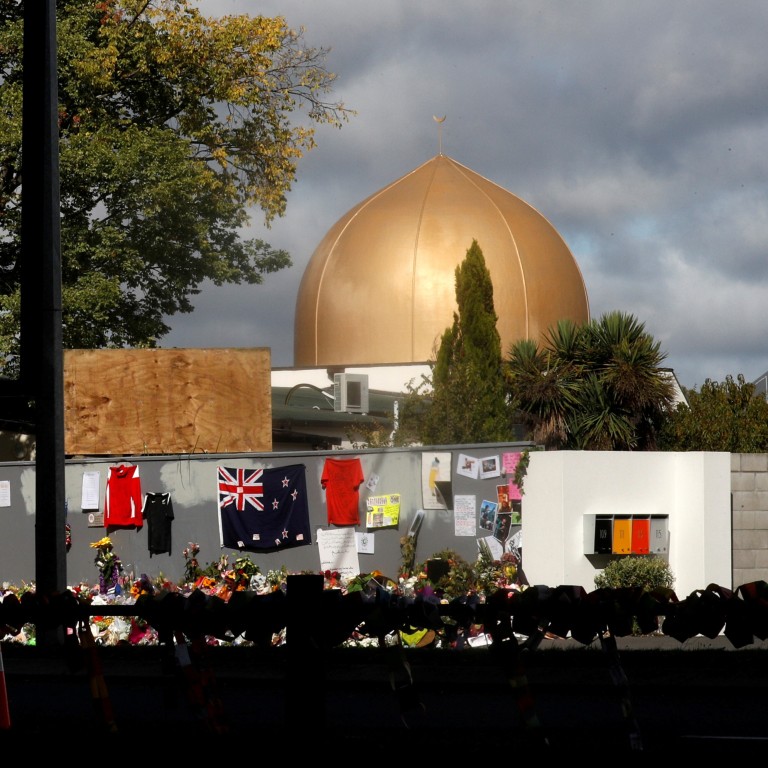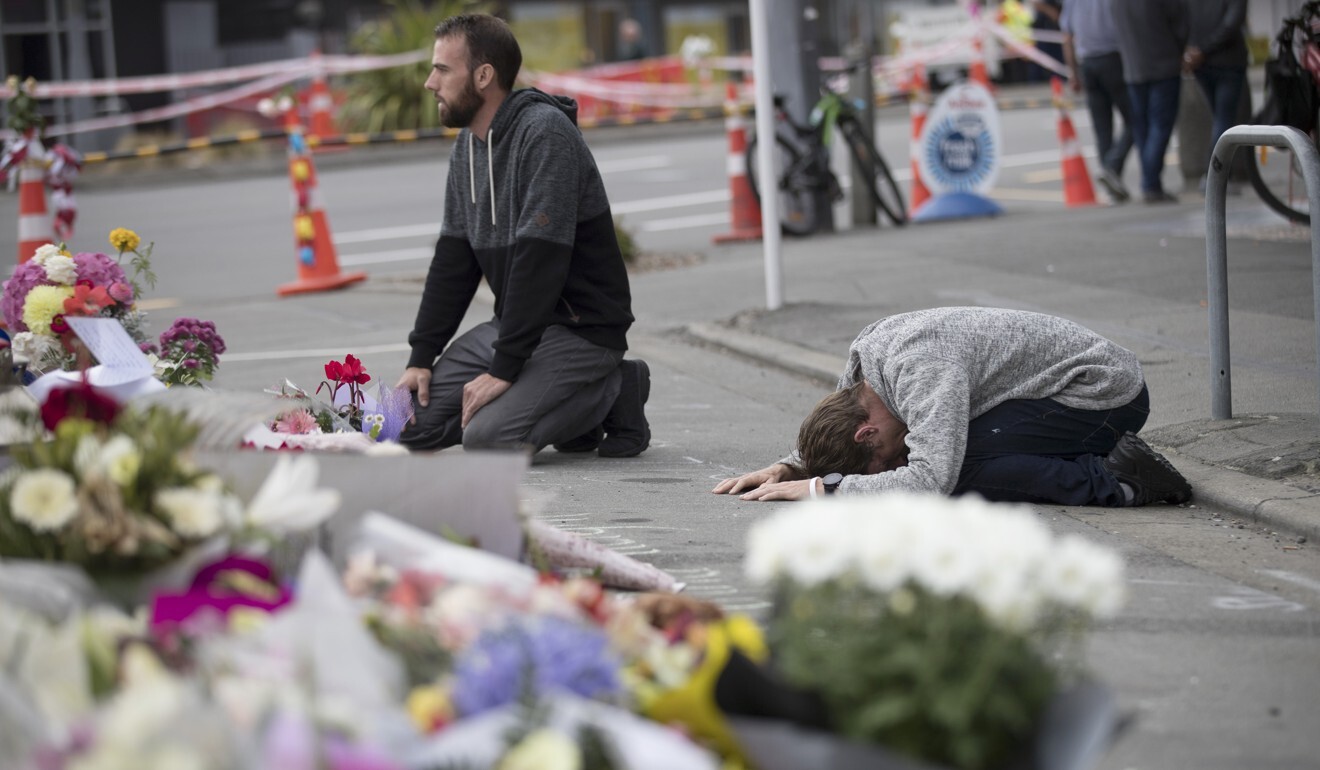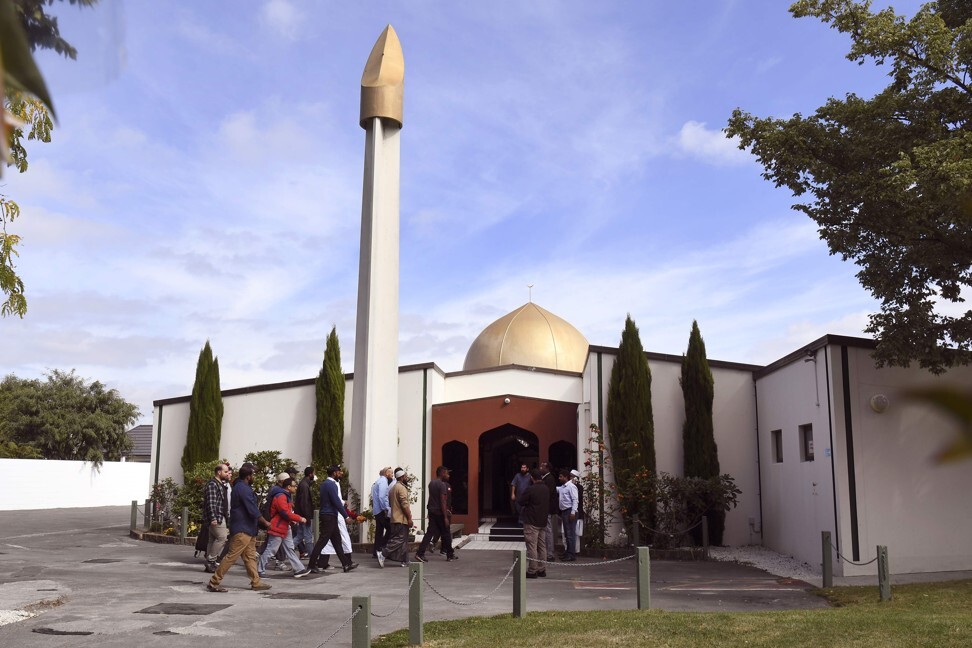
New Zealand mosque attack evidence will be suppressed for 30 years: royal inquiry
- The Royal Commission of Inquiry commissioners say the move will prevent others from using the full report as a ‘how-to’ terrorism manual
- The inquiry’s report, sans evidence, will be publicly released on December 8, after first being shared with victims’ families and political party leaders
Evidence given by New Zealand ministers and public sector bosses will also be sealed for three decades, said commissioners Sir William Young and Jacqui Caine.
Full publication of the evidence could provide a “how-to manual for future terrorists”, they said in a statement.
Christchurch mosque shooter jailed for life without parole
The interview had included acknowledgements by Brenton Tarrant about what he felt were “mistakes” in the way he carried out the massacre – which could be read by potential terrorists as “advice”. Furthermore, his motives and “reasoning” could be used to provide a platform for the dissemination of his views.
Those concerns would likely have “dissipated” in 30 years, the commissioners said.
The transcript of the interview, however, would be provided to the New Zealand Police and the New Zealand Security Intelligence Service to help them improve their knowledge of extreme right-wing and lone-actor terrorists.

A number of individuals involved in the inquiry would also have their identities suppressed, including the police officers who had vetted Tarrant for his firearms licence and the people who provided references for him.
“We told them that our process was private and that we would not publish in our report what they told us without first going back to them,” they said. “We did this with a view to encouraging candour, which we received.”
The commissioners noted that some member of Muslim communities, academics and public sector agencies wanted the inquiry’s interview with Tarrant to be published.
New Zealand mosque shooter spent years preparing attack, court hears
“Some people are frustrated that, by his guilty pleas, the individual avoided a trial at which the reasons for the terrorist attack might have been explored,” their minute said.
The inquiry’s report was on Friday handed to Internal Affairs Minister Jan Tinetti and will be publicly released on December 8, after first being shared with victims’ families and political party leaders.
It will detail any failings by police, spies, and other government agencies in the lead-up and aftermath to the mosque shootings on March 15, 2019, in which 51 people were killed.
Islamic Women’s Council national coordinator Anjum Rahman said the suppressions raised concerns about accountability.
“If there are significant failings, the people at the top are responsible for that. And so I find it difficult that those people would continue in their roles,” she said.
“Also, for past ministers of the Crown who are included in that, there is no accountability for them unless the report itself contains sufficient evidence and submissions that recounts any failings, negligence, incompetence on their part.”
Far-right terrorism still alive in New Zealand, a year after massacre
Anjum said if the inquiry did not provide necessary accountability, a coroner’s inquest could be required. She noted that would be a stressful process and could only occur at the request of victims.
A coroner’s inquest would also allow exploration of aspects of the attack which the Royal Commission had ruled out, such as the role of social media companies or recommendations for gun reforms.
Tinetti said she would table the report in parliament on December 8.
Tarrant was sentenced to life imprisonment without parole in August.


